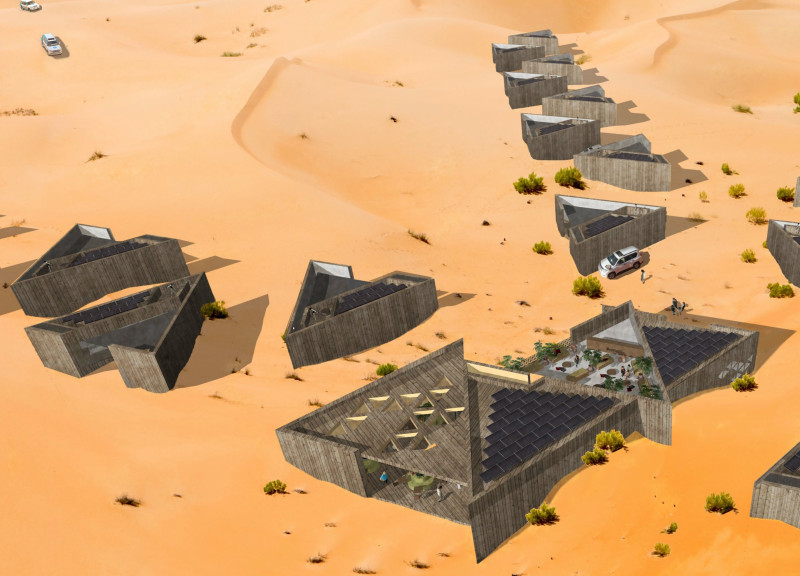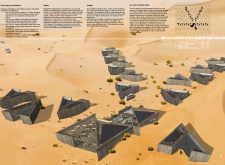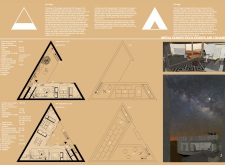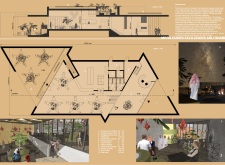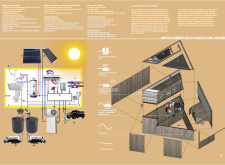5 key facts about this project
The Mega Dunes Ecolodges project, situated in the vast deserts of Abu Dhabi, embodies a sensitive approach to architectural design that acknowledges the unique challenges of a desert environment. This project focuses on sustainability and comfort, integrating modern architecture with the natural landscape. The design comprises a series of triangular lodges, each strategically oriented to maximize both environmental performance and occupant experience.
The lodges serve distinct functions across various scales, including standard and VIP accommodations, alongside a central community hub that fosters interaction among guests. The use of cross-laminated timber, reinforced concrete, and glass facades illustrates a commitment to sustainable material choices. These materials facilitate energy efficiency, thermal regulation, and adaptability to the regional climate.
Triangular form is central to the design, offering both aesthetic appeal and practical advantages. This geometry allows for effective natural light penetration and enhanced airflow, making the interior spaces comfortable in typically harsh weather conditions. The design not only addresses functional needs but also enhances the visual connectivity with the surrounding desert.
Sustainability Features and Energy Efficiency
One of the project’s unique aspects is its advanced sustainability features. The integration of solar panels provides renewable energy, addressing heating and cooling needs through a hybrid system. This system is complemented by a rainwater and greywater harvesting approach, significantly minimizing water consumption and maximizing resource efficiency. The design emphasizes natural ventilation, employing strategically placed openings and skylights to promote passive cooling.
The project also prioritizes the experience of the desert environment, positioning the lodges to allow unobstructed views of the skyline at night. This highlights the importance of engaging with the natural beauty of the site, creating a unique opportunity for stargazing within the desert space.
Community Engagement and Spatial Organization
The spatial organization of the Mega Dunes Ecolodges emphasizes community interaction. The central hub acts as a focal point for social activities, encouraging engagement and relationship-building among guests. By clustering the lodges around communal areas, the design promotes a sense of belonging and community while providing private retreats for rest and relaxation.
The relationship between the built environment and the desert landscape is carefully considered throughout the project. The design choices reflect an understanding of the surrounding ecology and a commitment to operate within its constraints. This ecological sensitivity distinguishes the Mega Dunes Ecolodges from typical architectural developments in similar environments.
For further insights into this innovative project, including architectural plans, architectural sections, and architectural ideas, readers are encouraged to explore the full project presentation. Delving into these elements will provide a deeper understanding of how this design effectively exemplifies sustainable architecture within a desert context.


